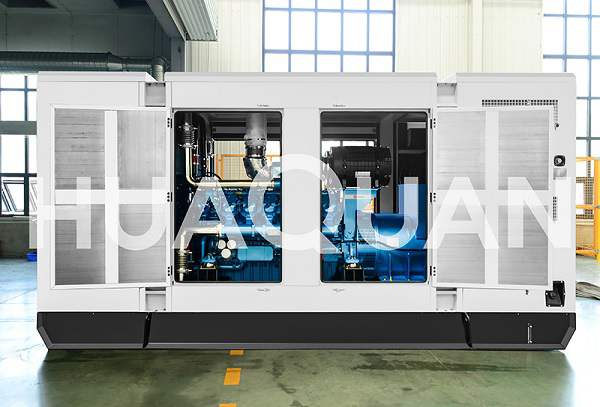
In modern enterprise operations, data centers are crucial for information storage and processing, carrying vast amounts of critical data and applications. Ensuring their high availability is crucial, necessitating backup power systems. With increasing emphasis on information security and business continuity, the importance of
data center backup power is growing. This article will explore in detail the types, functions, selection, and maintenance of data center backup power systems to help enterprises effectively manage their data center power systems.
1. Types of Data Center Backup Power
Data center backup power systems primarily consist of uninterruptible power supplies (UPS), generator sets (DGs), and batteries. Each of these systems has its own unique characteristics, and their combination typically depends on the scale, criticality, and specific needs of the data center.
1. Uninterruptible Power Supply (UPS)
The UPS is the primary backup power system for data centers, primarily designed to provide a rapid and stable power supply during utility outages or voltage fluctuations. There are several common types of UPS:
- Online UPS: Utilizing double-conversion technology, it provides high-quality power and effectively resists power quality issues.
Offline UPS: Provides direct power when the utility power is normal, switching to battery power in the event of an anomaly. It is suitable for applications where power quality is less critical.
Line-interactive UPS: Combines the advantages of both online and offline UPSs, automatically adjusting to grid voltage fluctuations.
2. Generator Set (DG)
Generators are primarily used to provide large-scale power during extended power outages. Their features include:
- Long-term power supply capability: Suitable for powering large-scale data centers for hours or even days.
- Fuel type: Available in a variety of fuels, including diesel and natural gas, to meet diverse application requirements.
3. Batteries
Battery systems are often used as a backup for UPSs, especially when the UPS battery is low. Their features include:
- High energy density: Capable of storing more energy within the same volume.
- Fast response: Capable of rapid startup to support the power system.
II. The Role of Data Center Backup Power
Data center backup power is more than just a safeguard against sudden power outages; it also performs multiple critical functions to ensure the continuous and stable operation of the data center.
1. Power Interference Protection
In data centers, power disturbances (such as voltage fluctuations and frequency variations) can cause equipment failure and data loss. UPS and other backup power supplies can effectively filter out these power disturbances, protecting the normal operation of data center equipment.
2. Stable Power Supply
Power consistency and stability are crucial for running servers and network equipment. UPSs provide stable output voltage, ensuring normal server operation and reducing the risk of downtime.
3. Data Integrity Protection
In the event of a power outage, applications supporting real-time data may face the risk of data loss. Backup power supplies ensure that data is preserved during a power outage, protecting data integrity and minimizing losses.
4. System Redundancy
Using dual UPSs or dual generator sets for redundancy ensures that a single power failure will not affect the entire data center's power supply, improving system reliability.
III. Choosing the Right Data Center Backup Power Supply
When selecting a data center backup power supply, it's important to carefully consider the following aspects:
1. Load Calculation
Understanding the current and potential future loads your data center will bear is a prerequisite for selecting a backup power supply. Consider the power requirements of servers, grid communications equipment, storage devices, and other devices, ensuring that the backup power supply can meet the normal operation of all equipment.
2. Runtime
Determining how long power support is needed in the event of a power outage is a key consideration when selecting a backup power supply. For example, some critical tasks may require just over ten minutes, while large-scale enterprises may require continuous power supply for hours or even days.
3. Maintenance and Service
Maintenance of backup power supplies is crucial to ensuring their proper operation. Choosing a brand with excellent after-sales service and technical support can minimize the impact of emergencies on your business and ensure that the equipment remains in good working condition.
4. Environmental Protection and Energy Efficiency
Besides meeting energy efficiency standards, it is important to select environmentally friendly equipment. Reducing carbon emissions has become a top priority for businesses today.
IV. Data Center Backup Power Supply Maintenance
Maintenance of data center backup power supplies should be carried out throughout the product lifecycle. Establishing a comprehensive maintenance system can significantly improve their efficiency.
1. Regular Inspections
Regularly inspect and evaluate the operating status of the UPS, generator set, and battery, including battery charge, power load, and overall equipment health.
2. Cleaning and Maintenance
Regularly clean dust and dirt from inside the equipment to maintain good heat dissipation and reduce equipment failure rates.
3. Fault Testing
Perform emergency power tests by regularly simulating power outages to ensure that the backup power system can quickly activate and provide power when needed.
4. Upgrades
With technological advancements, older equipment may no longer meet the needs of modern businesses. Regularly assess equipment condition and upgrade as necessary to adapt to the rapidly changing market environment.
V. Summary
With technological advancements and the rapid development of the information industry, the role of data centers is becoming increasingly important. A backup power system that ensures stable and efficient operation is essential. Through scientific backup power selection and proper maintenance and management, enterprises can effectively improve the reliability and security of their data centers, laying a solid foundation for sustainable business development.
